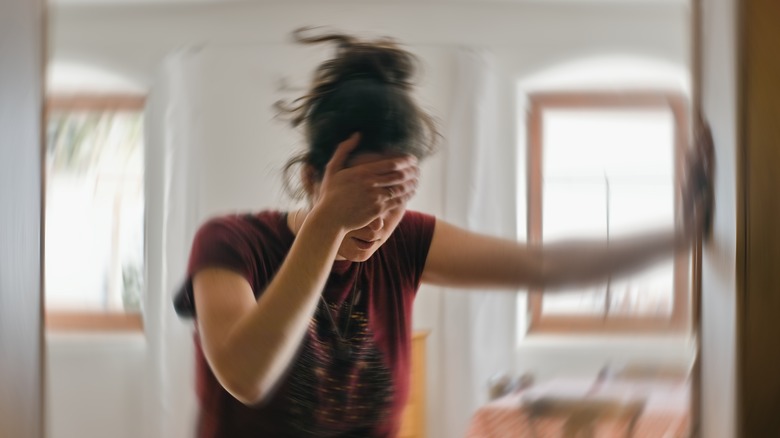What It Really Means When You Feel Weak On One Side Of Your Body
When you experience weakness on one side of your body, it can be a scary and frustrating feeling. You may feel like you're not in control of your own body, and it can make everyday tasks seem impossible. One common explanation of this feeling is hemiparesis, and it's a type of paralysis that can be caused by a stroke (via Healthline). Hemiparesis occurs when there is damage to the motor cortex of the brain, which controls movement. This damage can be caused by a stroke, a brain injury, or a degenerative disease like ALS. Hemiparesis can affect any part of the body, but it usually affects one side more than the other.
Recovering from hemiparesis takes time, patience, and hard work. It's important to have a support system in place to help you through the tough times. A multidisciplinary team, including physical, occupational, and speech therapists, can help you regain strength and function. With their help, as well as your own determination, you can live a fulfilling life despite hemiparesis. If you are experiencing weakness on one side of your body, it's important to talk to a doctor. This symptom should be taken seriously and not ignored.
What to know about stroke
A stroke is a serious medical emergency that occurs when the blood supply to the brain is cut off (via Mayo Clinic). This can happen due to a blocked artery or a bleed in the brain. Symptoms of a stroke include sudden weakness or numbness in the face, arm or leg (usually on one side of the body), difficulty speaking or understanding speech, and sudden dizziness, loss of balance or coordination. If you experience any of these symptoms, it is important to call 911 immediately as time is of the essence in treating a stroke. Strokes can be fatal or cause long-term disability, so it is important to get medical help as soon as possible.
Risk factors for having a stroke include high blood pressure, diabetes, and family history. Lifestyle factors include smoking, obesity, and excessive alcohol consumption. Treatment for a stroke often includes clot-busting medication and surgery to remove the blockage or bleed. With quick treatment, many people make a full recovery from a stroke. However, some people may experience long-term problems such as difficulty speaking, paralysis, and memory loss. The timing of medical care is often crucial when it comes to someone's recovery.


